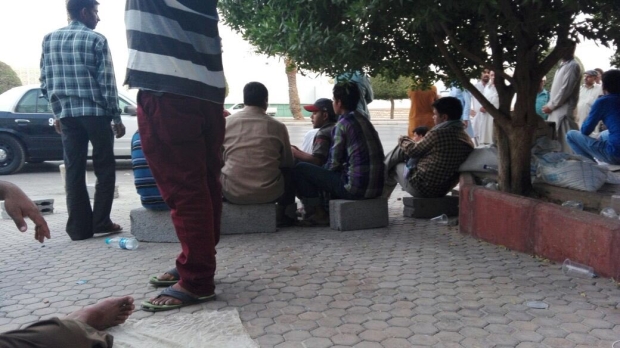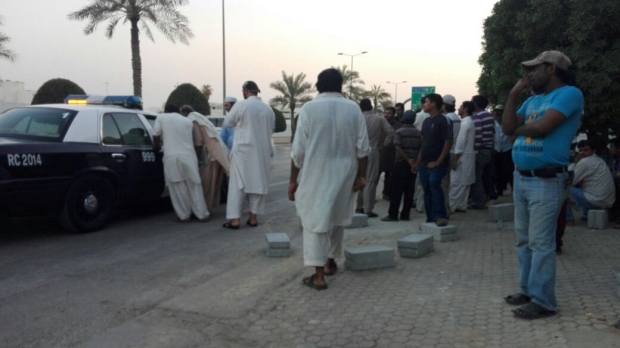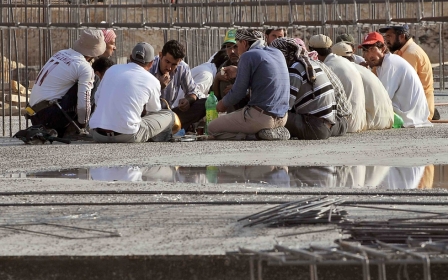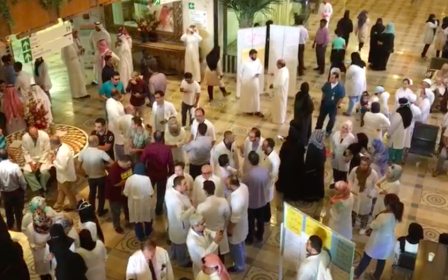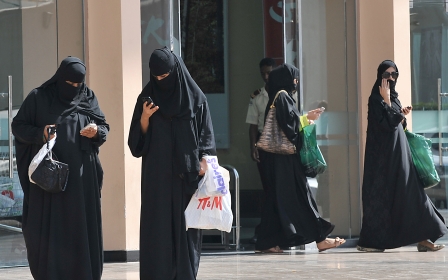Saudi firm tells staff to forget owed pay if they want passports back
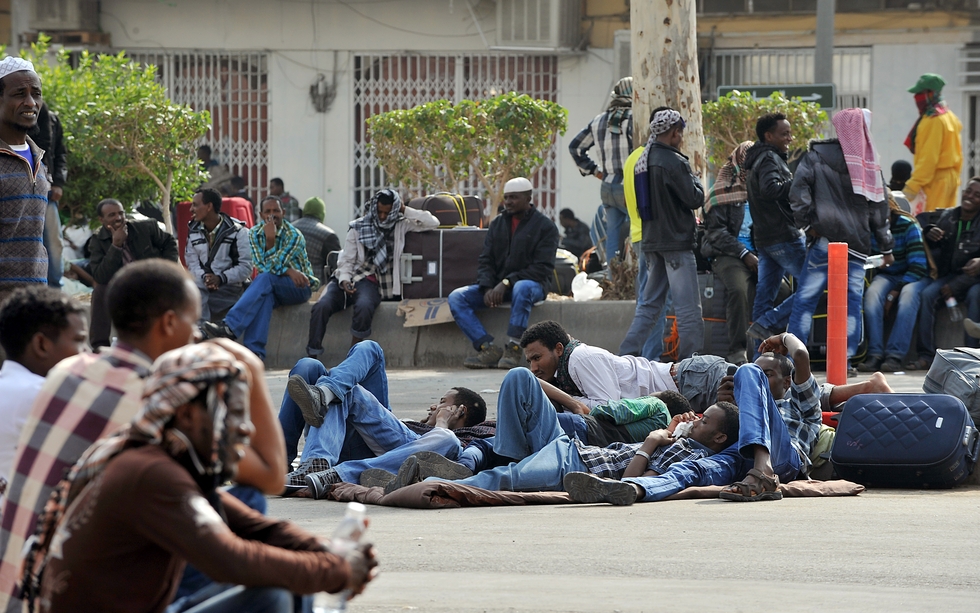
Foreign staff at Saudi construction firm United Seemac were told on Sunday they must give up on receiving pay arrears if they want to get their passports back and leave the kingdom, workers told Middle East Eye.
Desperate Pakistani, Indian and Filipino workers submitted a request for their passports to company management in Riyadh before the annual hajj pilgrimage on 9 September.
On Sunday they were finally told that if they want their passports back, they must accept not being paid money owed by the company.
“Head office [in Riyadh] said in order to return the passports we have to sign papers saying we have received all our money,” Kamran Bhatti, who has not been paid in 14 months, told MEE.
Pakistani Bhatti has worked as a designer at United Seemac for five years, and is based at the company’s office in the south-west city of Khamis Mushait.
He is one of more than 500 staff at the building company who have been working without pay for months. A database compiled by workers and seen by MEE previously revealed that staff haven’t been paid for a minimum of six months, while some have gone without wages for 20 months.
Bhatti’s work permit - known locally as an iqama - expired on 3 April, but most permits for foreign staff expired last year and the company has not paid to have them renewed. This has resulted in workers being trapped in company accommodation, too scared to go outside as they face arrest for being in Saudi Arabia illegally.
“We are trapped in our rooms and can’t go outside,” Bhatti said.
Staff at company accommodation in Riyadh said living conditions have deteriorated quickly in recent weeks, as services have been cut off and maintenance has lapsed.
“The situation is getting worse day by day,” one staff member said, asking to remain anonymous. “There is no water for toilets and the kitchen - people have to go to the mosque to use the bathroom.”
Some workers have found jobs at other companies in the kingdom, but Bhatti said United Seemac are refusing to return their passports and allow them to transfer to another sponsor, as stipulated by Saudi Arabia’s employment sponsorship system, known as kafala.
“They said United Seemac does not allow staff to transfer sponsor,” Bhatti said.
Bhatti added that the labour courts have done nothing to uphold a 2015 law that prohibited employers from confiscating workers’ passports.
“No action is being taken against the company,” he said, explaining that United Seemac staff have tried to get the courts to intervene for the past nine months.
No one at United Seemac responded to repeated requests for comment, but the general manager - known only as Abu Mohammed - previously told MEE the reason staff haven’t been paid is because the government hasn’t paid up for completed contract work.
At the end of August Abu Mohammed said “when we get our money from the government we are going to give the people their money” but one month on and nobody has been paid.
Over the past two weeks Pakistani embassy staff have held two meetings with Abu Mohammed in which he promised the foreign workers would be paid on 27 September.
But United Seemac staff have grown tired of unfulfilled promises and they have increasingly turned to public strike action to raise their voices.
Two strikes outside company offices have taken place in the last fortnight, despite protests and public demonstrations being strictly banned in Saudi Arabia.
Police have not arrested any of the workers yet, but potential confrontation is in the cards as future protests may move to the house of United Seemac owner Mohammed Owaideh.
“The owner does not go to the office,” Bhatti said. “Police have strictly ordered workers not to protest in front of his house.”
But with the situation becoming increasingly desperate, the foreign workforce may be driven to take action that puts it at risk of being imprisoned.
For Bhatti, he said the time has come to confront United Seemac in Riyadh, and he has handed in his notice to leave the company and will move to Riyadh next month.
“It’s a do or die situation,” he said, adding that he doesn’t know how he will support himself in the capital. “There is no other option left and I really don’t know what will happen there [in Riyadh]. But I feel more of us will be in Riyadh and this will make us more united and more effective.”
Officials from Pakistan, India and the Philippines have visited Saudi Arabia to try and resolve a situation that has left at least a combined 30,000 people stranded in the kingdom.
Workers have slowly been repatriated - on 16 September 300 Pakistanis arrived back home but many of them had been forced to leave Saudi Arabia without being paid. But repatriation efforts have focused on the kingdom’s biggest companies - including Saudi Oger and the Bin Ladin Group where tens of thousands of workers were unpaid for months before being laid off.
The crisis is part of wider economic problems in Saudi Arabia, which is under pressure because of a collapse in oil revenues that account for 80 percent of government income. In 2015 the government posted a record $98bn budget deficit, causing many of the kingdom’s construction projects to be suspended or cancelled.
New MEE newsletter: Jerusalem Dispatch
Sign up to get the latest insights and analysis on Israel-Palestine, alongside Turkey Unpacked and other MEE newsletters
Middle East Eye delivers independent and unrivalled coverage and analysis of the Middle East, North Africa and beyond. To learn more about republishing this content and the associated fees, please fill out this form. More about MEE can be found here.


